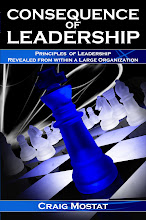
I just saw the latest abs sculpting exercise machine advertised on TV. It looked complicated enough to be an important component off the drive train in the Space Shuttle. We have all seen them - the 30 second commercial full of very fit and sculpted men and women, wearing as little as possible and all little of it - spandex, demonstrating the machine, and suggesting that, I too, could look like them if I had a machine like this.
The reality is that everyone has fantastic looking abs, just like that fit guy or skinny girl in on the commercial – yes you have a six-pack and it looks awesome. The problem is that in most people, that six-pack is not visible – it is just not quite at the surface. Your omentum is in the way. Contrary to popular belief, fuelled by marketing to sell exercise products, doing sit-ups or using that brand new abs machine will not make your abs any more visible. In other words – working one area of your body will not make the fat from that area disappear. Spot reduction is a myth.
Since this is not a fitness blog, what does this have to do with leadership?
We all want the easy fix. That brand new concept, product, program, marketing campaign, strategy, etc. is not going to cover for all of the foundational, structural, cultural, and systemic problems that exist in your organization. Companies that put their hope in that "magic bullet" to fix all of their problems and shortfalls in results are always disappointed. The weaknesses in your company will always limit the great new ideas. For this reason, you must work on the total package – the entire organization – and continuously strive toward excellence in every area.
The people in the abs commercial did not get a body like that from this new exercise gizmo. "What? But I want to believe that it is really this easy." They have a healthy lifestyle which includes great dietary choices and a regular and well rounded exercise program. A great exercise routine can be largely overridden by a poor diet. The great new "thing" in your organization can be completely limited by a negative culture or restrictive systems. This truth is hard to swallow in both cases, and is all too often, completely ignored.
This is not about stealing hope, but rather - facing reality. Hope is important for a team and leaders must be dealers in hope. However, putting all your hope in the "new corporate abs machine" is just as delusionary as expecting that new exercise machine to override decades of neglect of your body.
Photo by: http://www.flickr.com/photos/nutted

The corporate abs machine






